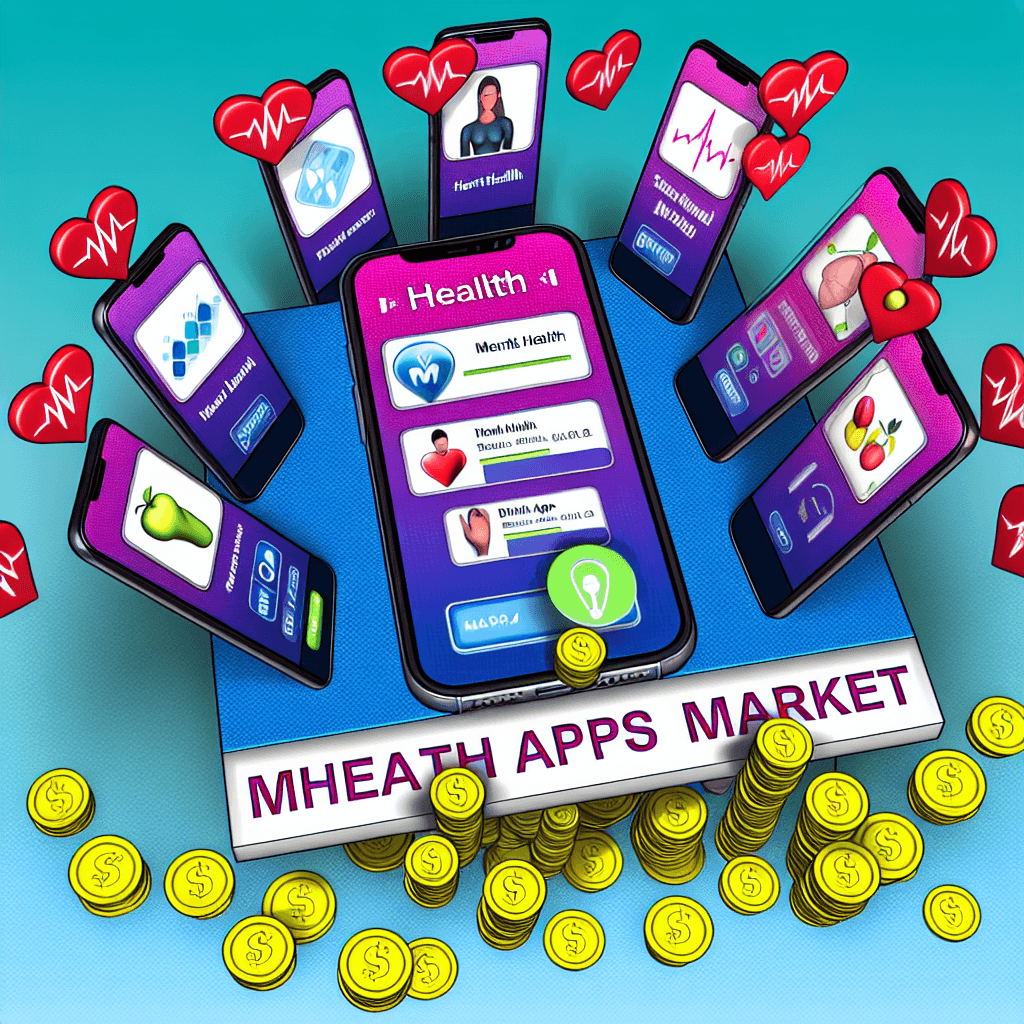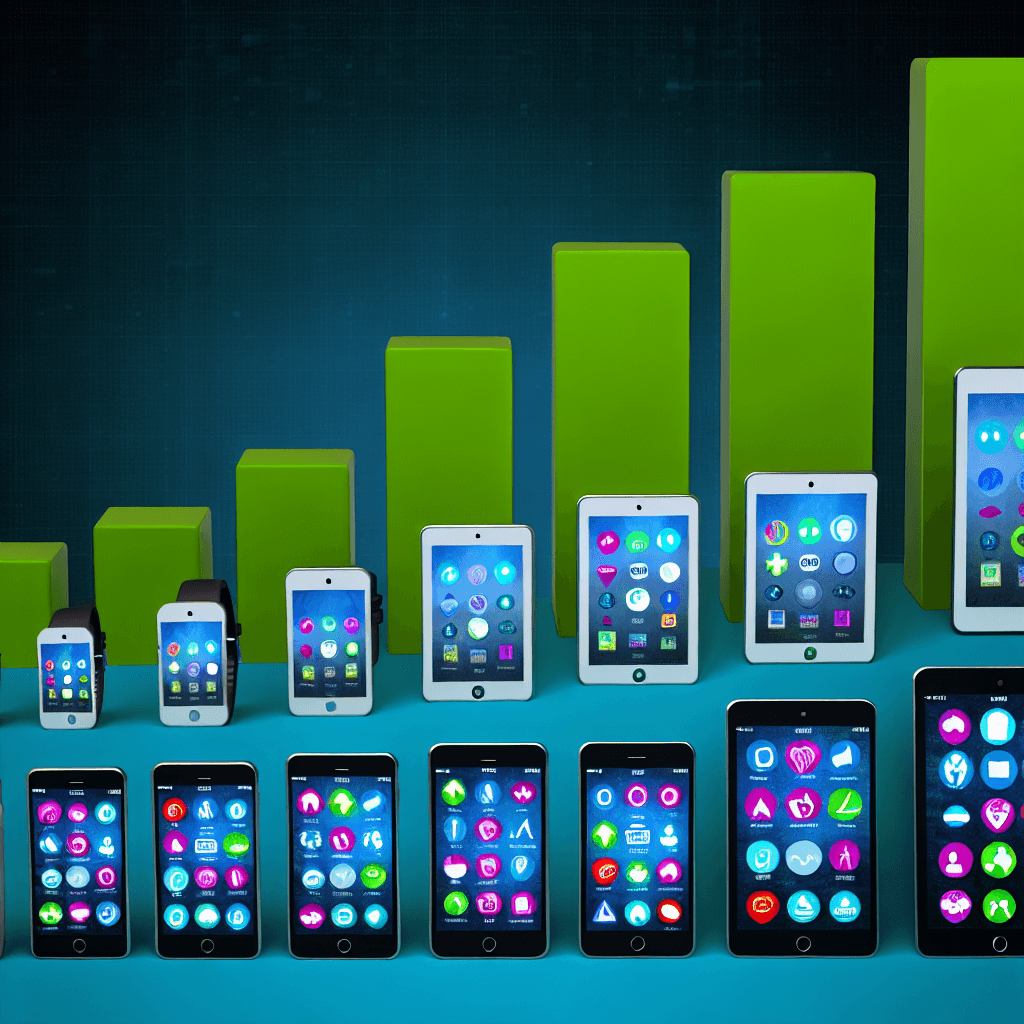Explore the mHealth apps market trends, growth drivers, and global forecasts in healthcare technology for improved patient outcomes.
mHealth Apps Market

Table of Contents
The Expanding Horizon of mHealth Apps Market

The mobile health (mHealth) apps market has been growing exponentially, driven by advancements in mobile technology, increased health awareness among consumers, and the rising prevalence of chronic diseases. This article explores the dynamics of the mHealth apps market, highlighting its growth, trends, and the challenges it faces.
Understanding mHealth Apps
mHealth apps refer to mobile applications that offer health-related services on smartphones, tablets, and other mobile devices. These apps aim to improve patients’ health management, enhance diagnostic accuracy, and increase convenience for both healthcare providers and patients. The spectrum of mHealth apps includes everything from wellness and fitness trackers to medical reference guides and patient health management tools.
Market Growth and Trends
The mHealth apps market has witnessed significant growth over the past decade. According to a report by Grand View Research, the global mHealth apps market size was valued at USD 40.05 billion in 2020 and is expected to grow at a compound annual growth rate (CAGR) of 17.7% from 2021 to 2028. This growth is fueled by several factors:
- Increasing smartphone penetration: With more people owning smartphones worldwide, the reach of mHealth apps has expanded, making health management more accessible.
- Government initiatives: Many governments are promoting digital health technologies to improve healthcare delivery in their countries.
- Rising healthcare costs: As healthcare costs continue to climb, both providers and patients are looking for cost-effective solutions like mHealth apps to manage health.
- COVID-19 pandemic: The pandemic has accelerated the adoption of digital health tools, including mHealth apps, as people seek remote and contactless alternatives to in-person healthcare services.
Key Players and Innovations
The mHealth apps market is highly competitive with numerous players, ranging from tech startups to established healthcare companies. Some of the key players include Apple Inc., Fitbit Inc., and MyFitnessPal Inc. These companies are continually innovating to capture a larger share of the market. For instance, Apple’s HealthKit allows users to keep track of their health and fitness data in one place, making it easier to monitor their overall well-being.
Case Studies: Success Stories in mHealth
Several case studies highlight the potential and success of mHealth applications in improving health outcomes:
- Diabetes Management: Apps like MySugr and Glucose Buddy have helped individuals manage their diabetes by tracking blood sugar levels, diet, and insulin intake. These apps have been shown to improve glycemic control significantly.
- Mental Health: Mental health apps like Headspace and Calm have gained popularity for their role in providing guided meditation and helping users reduce stress, anxiety, and depression.
- Remote Monitoring: Apps such as Teladoc Health and Amwell allow patients to consult with doctors remotely, reducing the need for physical visits and enabling timely medical advice.
Challenges Facing the mHealth Apps Market
Despite its rapid growth, the mHealth apps market faces several challenges:
- Data Privacy and Security: Handling sensitive health data requires stringent security measures to protect against breaches, which can be a significant hurdle for app developers.
- Regulatory Compliance: Navigating the complex landscape of healthcare regulations is another challenge, as non-compliance can lead to penalties and loss of user trust.
- User Engagement: Keeping users engaged with health apps is crucial for their effectiveness but remains a challenge due to the abundance of apps available and varying user preferences.
- Integration with Healthcare Systems: Integrating mHealth apps with existing healthcare systems is essential for seamless functionality but can be technically challenging and costly.
Future Outlook
The future of the mHealth apps market looks promising with continuous advancements in technology and more personalized healthcare solutions. Emerging trends such as artificial intelligence (AI), machine learning, and the Internet of Things (IoT) are set to revolutionize the way mHealth apps function, making them more intelligent and efficient.
Conclusion
The mHealth apps market is set to transform the healthcare landscape by making health management more accessible, cost-effective, and efficient. While challenges such as data security and regulatory compliance persist, the ongoing innovations and government support are likely to propel the market forward. As technology continues to evolve, mHealth apps will play a crucial role in shaping the future of healthcare.
In conclusion, whether for managing chronic conditions, improving mental health, or facilitating remote consultations, mHealth apps are becoming an integral part of modern healthcare, promising a healthier future for all.








